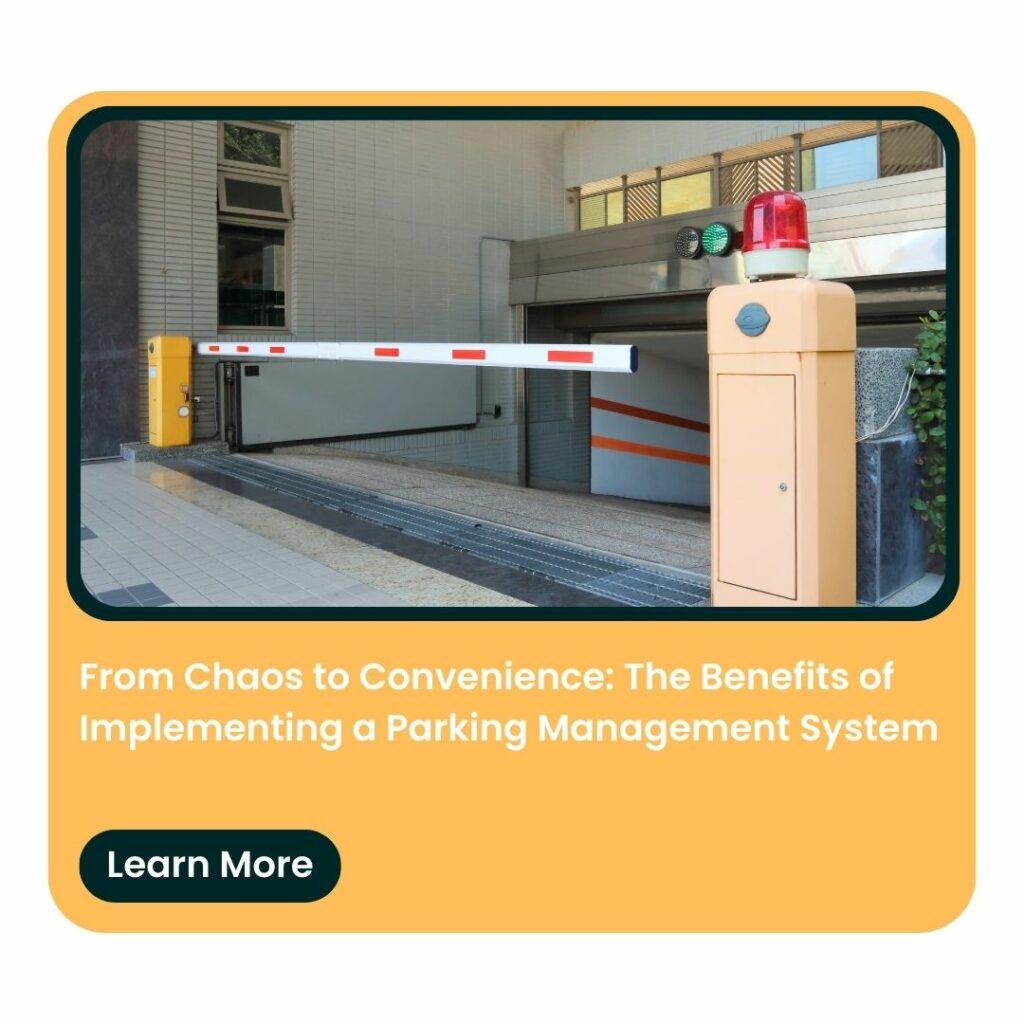In today’s fast-paced world, where time is of the essence, finding a convenient parking spot can often feel like searching for a needle in a haystack and smart parking management system can help. The constant struggle of circling around crowded parking lots, wasting precious minutes, and feeling the frustration of not finding a suitable spot can quickly turn anyone’s day into chaos.
However, there is a solution that can transform this chaotic experience into one of ease and convenience – implementing a parking management system.
By harnessing the power of technology, a parking management system offers a plethora of benefits that not only alleviate the stress of parking but also enhance the overall experience for both drivers and parking lot operators.
From real-time availability information to seamless payment options, this innovative solution is revolutionizing the way we park. Join us as we delve into the incredible advantages of implementing a parking management system and discover how it can bring order and convenience to our chaotic parking woes.
The Challenges of Traditional Parking Management
Traditional parking management has long been plagued with challenges that hinder the overall parking experience. One of the primary issues is the lack of real-time information on parking availability. Drivers often find themselves driving from one parking lot to another, only to discover that all the spaces are occupied.
This not only wastes valuable time but also adds unnecessary stress to an already hectic day. Additionally, the manual payment processes, such as cash payments or using outdated parking meters, can be cumbersome and time-consuming for both drivers and parking lot operators.
The lack of proper safety and security measures further exacerbates the problem, leaving drivers concerned about the safety of their vehicles. Clearly, traditional parking management falls short in providing the convenience and efficiency that drivers and parking lot operators seek.
Benefits of Implementing a Parking Management System
- Increased Efficiency and Convenience for Drivers
One of the key benefits of implementing a parking management system is the increased efficiency and convenience it offers to drivers. With a parking management system in place, drivers can easily access real-time information on parking availability through mobile applications or digital signage. This allows them to plan their parking ahead of time and avoid unnecessary circling around parking lots.
Moreover, many parking management systems offer features like reservation options, where drivers can secure a parking spot in advance, ensuring peace of mind and a hassle-free parking experience.
Additionally, the integration of license plate recognition technology eliminates the need for physical parking tickets, making the entry and exit process seamless and efficient. Overall, a parking management system streamlines the entire parking process, saving drivers time and reducing frustration.
- Improved Revenue and Cost Management for Parking Operators
Implementing a parking management system not only benefits drivers but also brings substantial advantages to parking lot operators. With traditional parking management, revenue leakage is a common problem, as manual payment processes are prone to errors and fraud. However, a parking management system automates the payment process, ensuring accurate and transparent revenue collection.
By offering various payment options such as mobile payments and contactless payments, parking operators can cater to the preferences of a wider range of customers, ultimately increasing revenue. Furthermore, the system provides valuable insights into parking patterns and occupancy rates, allowing parking operators to optimize parking space utilization and make data-driven decisions to enhance profitability.
With improved revenue and cost management, parking operators can maximize their returns while providing a better parking experience.
- Enhanced Safety and Security Measures
Safety and security are paramount when it comes to parking. Traditional parking management systems often lack the necessary measures to ensure the safety of parked vehicles and the well-being of drivers.
However, a parking management system integrates advanced security features such as surveillance cameras, automatic alarms, and emergency call buttons, providing a safer environment for both drivers and their vehicles.
In the event of any security incidents or emergencies, these systems enable swift response and appropriate action, ensuring the utmost safety of individuals and their belongings. Additionally, the integration of license plate recognition technology allows for effective monitoring of vehicles, minimizing the risk of theft or unauthorized access.
With enhanced safety and security measures, drivers can have peace of mind while parking, knowing that their vehicles are well-protected.
- Real-time Data Collection and Analysis
A parking management system not only offers real-time information on parking availability but also collects valuable data that can be used for analysis and optimization. By monitoring parking patterns, occupancy rates, and peak hours, parking operators can gain insights into customer behavior and preferences.
This data can be utilized to improve parking space utilization, optimize pricing strategies, and plan for future expansions or improvements. Moreover, the data collected can be used to identify trends and patterns, allowing parking operators to anticipate and address potential issues before they arise.
With real-time data collection and analysis, a parking management system empowers parking operators to make informed decisions and continuously enhance the parking experience for their customers.
- Integration with Smart City Initiatives
Implementing a parking management system goes beyond just improving the parking experience. It also aligns with the goals of smart city initiatives. Smart cities aim to leverage technology to enhance the quality of life for their residents, and parking management systems play a crucial role in achieving this objective.
By integrating with smart city infrastructure, such as connected sensors and intelligent transportation systems, a parking management system can contribute to reducing traffic congestion, improving air quality, and optimizing overall urban mobility. Additionally, the integration of parking data with other smart city applications, such as navigation systems and public transportation, enables a seamless and integrated travel experience for residents and visitors alike. The implementation of a parking management system is a step towards creating smarter, more sustainable cities.
Case Studies of Successful Parking Management System Implementations
To truly grasp the benefits of implementing a parking management system, let’s explore some real-world examples of its successful implementation. In the city of Singapore, the government implemented a comprehensive parking management system that included real-time parking availability information, electronic payment options, and a smartphone application for drivers.
This system not only improved the parking experience for drivers but also reduced traffic congestion and enhanced revenue collection for parking operators. Similarly, in Barcelona, a parking management system was implemented with a focus on integrating parking data with other smart city applications. This resulted in reduced parking search time for drivers, improved traffic flow, and increased parking revenue. These case studies highlight the transformative impact that a parking management system can have on a city’s parking ecosystem.
Considerations for Choosing a Parking Management System
When choosing a parking management system, there are several factors to consider to ensure the best fit for your specific needs. Firstly, compatibility with existing infrastructure and systems is crucial to facilitate a smooth transition and integration. Additionally, scalability and flexibility are essential, as parking needs may change over time.
The system should have the ability to adapt to future requirements and accommodate growth. Security is another critical consideration, as the system should provide robust protection against cyber threats and unauthorized access.
Moreover, the system’s user interface should be intuitive and user-friendly, both for drivers and parking operators, to ensure a seamless experience. Lastly, it is essential to evaluate the support and maintenance provided by the system provider to ensure ongoing reliability and efficient operation.
Conclusion
Implementing a parking management system offers a multitude of benefits that bring order and convenience to our chaotic parking woes. From increased efficiency and convenience for drivers to improved revenue and cost management for parking operators, the advantages are numerous.
Enhanced safety and security measures, real-time data collection and analysis, and integration with smart city initiatives further elevate the potential of a parking management system.
By choosing the right system and considering the specific needs of your parking ecosystem, you can transform the parking experience for drivers and operators alike. Embrace the power of technology and bid farewell to the chaos of traditional parking management – a brighter, more convenient future awaits.


